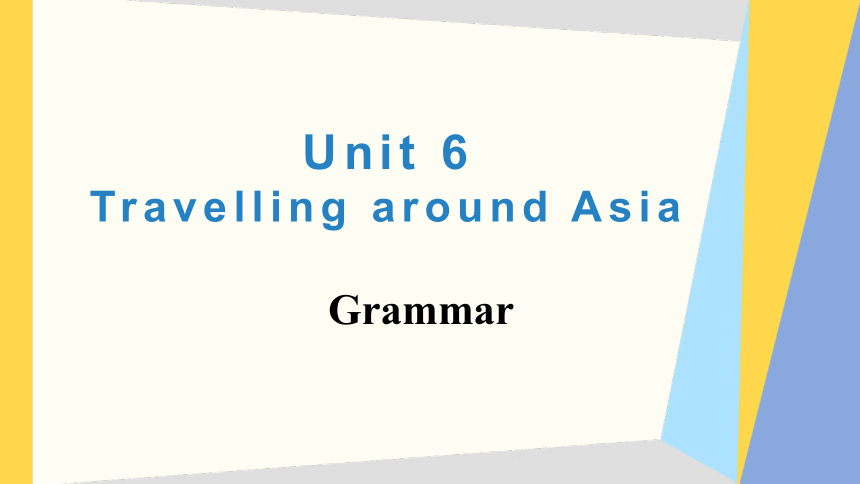(
课件网) Unit 6 Travelling around Asia Grammar Find the sentences with “if” from the article on page 73. If you like sightseeing, you will love it! If you visit People’s Square, you can also see famous buildings around it, such as Shanghai Grand Theatre and the Shanghai Museum. If you walk along the Bund, you will see many old buildings. If you enjoy history and natural beauty, you will love this garden. We call those sentences with “if” conditional sentences. We use conditional sentences to talk about possible actions and the results of these actions Grammar Conditional sentences (1) Find out the if-clause and the main clause. If you like sightseeing, you will love it! If you walk along the Bund, you will see many old buildings. If you enjoy history and natural beauty, you will love this garden. If-clause If-clause If-clause Main clause Main clause Main clause Sentence structure: If-clause, main clause. We can put the if-clause either before the main clause or after it. If you walk along the Bund, you will see many old buildings. Main clause If- clause You will see many old buildings if you walk along the Bund. If- clause Main clause Can you use another way to express the same idea If you like sightseeing, you will love it! You will love it if you like sightseeing! If you walk along the Bund, you will see many old buildings. You will see many old buildings if you walk along the Bund. If you enjoy history and natural beauty, you will love this garden. You will love this garden if you enjoy history and natural beauty. Sentence structure: If-clause, main clause. Main clause + if-clause. If you like sightseeing, you will love it! If you walk along the Bund, you will see many old buildings. If you enjoy history and natural beauty, you will love this garden. If you visit People’s Square, you can also see famous buildings around it, such as Shanghai Grand Theatre and the Shanghai Museum. Translate the following sentences into Chinese and try to tell the differences between them. will 表将来时,句子时态:主将从现。 can 表能够,是情态动词,句子结构:主情从现。 S1: Where will you go if you visit Beijing S2: If I visit Beijing, I will go to the Palace Museum. I will go to the Palace Museum if I visit Beijing. Beijing Shanghai Hangzhou Hong Kong Make up dialogues to talk about the pictures, using if-clause to answer. You can follow the example. Exercise time. A William has a lot of problems in his everyday life. William’s mum is giving him advice about his problems. Match the half-sentences from the boxes to complete her advice for him. you will know which books to bring. you will not feel tired in the mornings. you will find out its meaning. they will tell you what homework to do. If you go to bed early, If you call your friends, If you check your timetable every night, If you look it up in the dictionary, William's problems 1. I sometimes bring the wrong books to school. If you check your time ... ...

